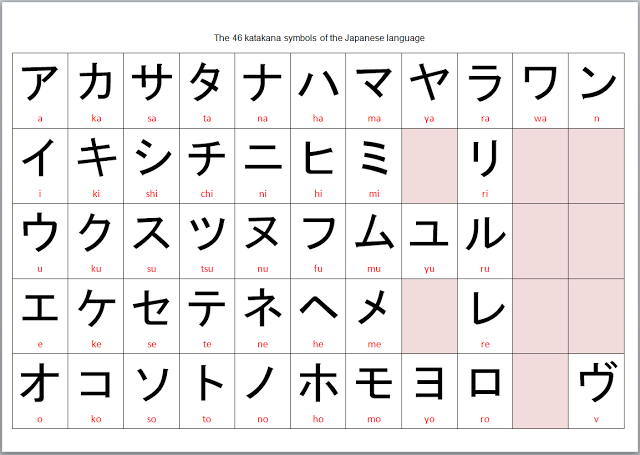

kurisumasu (Christmas)
ku ri su ma su





Meri Kurisumasu (Merry Christmas)
me ri ku ri su ma su







MakuDonarudo (MacDonald's) ma ku do na ru do
マ
ク
ド
ナ
ル
ド
hanbāgā (hamburger) ha n ba ga
ハ
ン
バ
ー
ガ
ー
basukon (birth control) ba su ko n
バ
ス
コ
ン
Sērusuman (salesman) Sē Ru Su Ma N
セ
ー
ル
ス
マ
ン
besuboru (baseball - a bit of a mix-up here with volleyball maybe) Ba Re Bo Ru
バ
レ
ー
ボ
ー
ル
Sakkā (soccer) Sa Ka-
サ
ッ
カ
ー
rabu (love) ra bu
ラ
ブ
Pāma (permanent waves - a perm hairdo) - Ladies hairdresser
パ
ー
マ
(2007) Today the new buzzword in some Japanese businesses is "daiba-shitii,"
or diversity. Da i ba - shi te i
ダ
イ
バ
ー
シ
テ
イ
suto (a strike, from sutoraiki) su to
ス
ト
Dokutā sutoppu (doctor's stop, to quit a health-threatening habit) Do ku tā - su to pu
ド
ク
タ
ー
ス
ト
ッ
プ
sekuhara (to sexually harass is to commit sekuhara) se ku ha ra
セ
ク
ハ
ラ
paso-kon (a personal computer) pa so ko n
パ
ソ
コ
ン
hande (a golfing handicap) ha n de
ハ
ン
デ
. . . and so on
A new verb can be created in Japanese by simply adding the verb ending ru to the end of any borrowed phrase, as in, say, "makuru" (マクる), to eat a McDonald's hamburger - maku, short for makudonarudo (マクドナルド), and ru. (The equivalent in French, by the way, is "bouffer un macdo".)
arubaito (das Jobben für Studenten, aus dem Wort Arbeit) a ru ba i to
ア
ル
バ
イ
ト
noirooze (Neurose) no i rō ze
ノ
イ
ロ
ー
ゼ
arerugii (Allergie)
"Karuta" - the Japanese word for playing cards - originating from the Portuguese word "Carta". It was the Portuguese who introduced card playing to Japan in the middle of the 16th century.